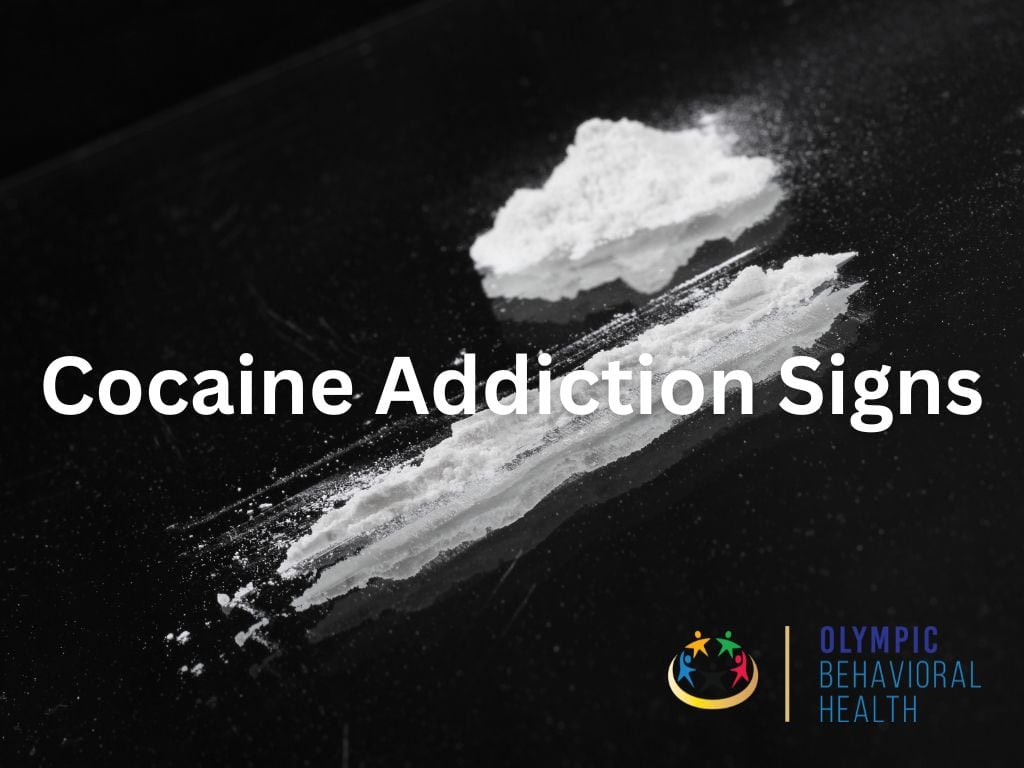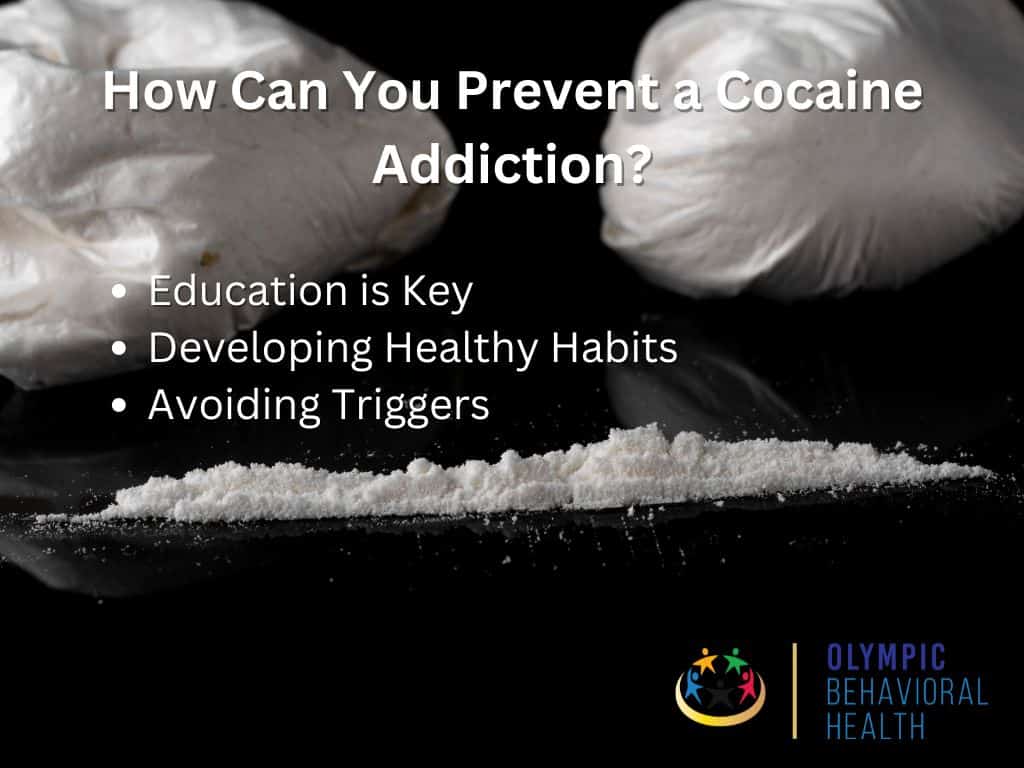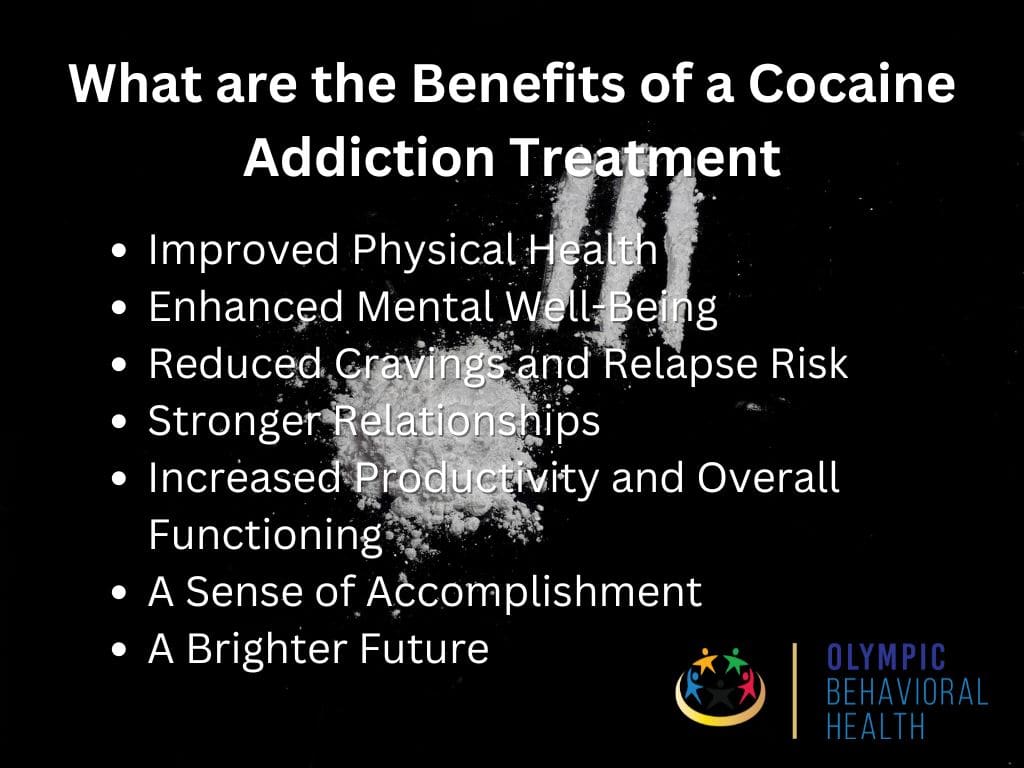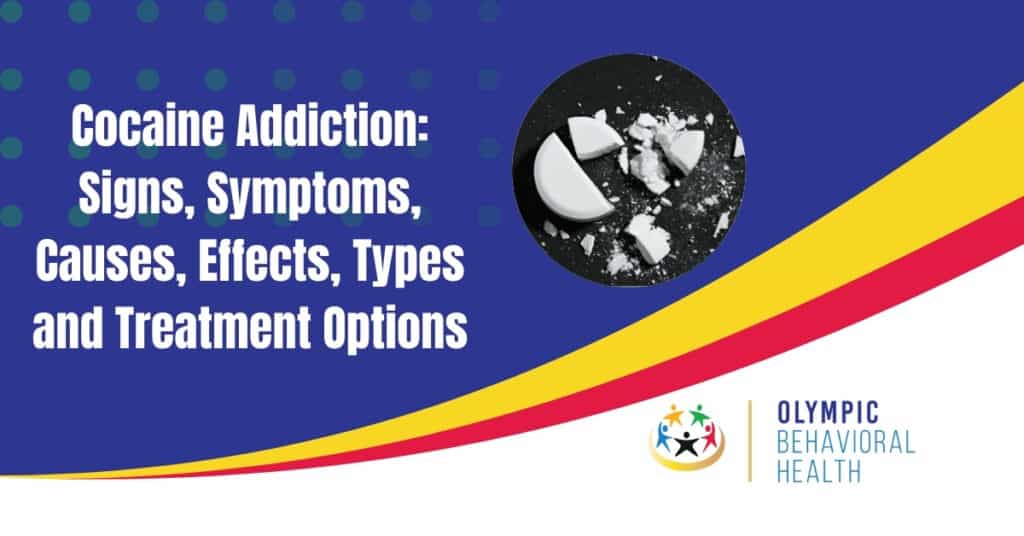Cocaine addiction is a chronic brain disease where someone compulsively seeks and uses cocaine despite negative consequences. It disrupts the brain’s reward system, leading to an intense craving for the drug.
Warning signs include continued use despite harm to health, relationships, and finances; needing more and more cocaine to feel the same effect (tolerance); neglecting responsibilities; and social isolation. Physical symptoms can include restlessness, fatigue, mood swings, and tremors.
Many factors contribute, including genetics, mental health issues like depression, and social circles where cocaine use is present. Early exposure to cocaine and a lack of support systems can increase the risk.
Cocaine alters brain chemistry, leading to addiction, risky behavior, psychosis, and heart problems. It can damage the lungs, nose, and digestive system. Mental health issues like anxiety and depression are common. Cocaine is typically snorted, smoked (crack cocaine), or injected. Each method has varying health risks and speeds of addiction.
Effective treatments combine behavioral therapy, medication, and support groups. Therapy helps individuals identify triggers and develop coping mechanisms. Medication can manage cravings and withdrawal symptoms. Recovery is a lifelong process, but with support, people can overcome cocaine addiction.

What is Cocaine?
Cocaine is a flakey white powder that comes from the coca plant in South America. It was first introduced into the U.S. in the 1880s as a local anesthetic and gradually as an antidepressant.
The 1960s however, saw recreational use of the drug due to its stimulating effects on the user. However, the feel-good effects of cocaine came at the expense of unpleasant risks, including addiction and lethal heart attacks, seizures, and strokes. This prompted the U.S. Drug Enforcement Administration to ban Cocaine and classify it as a Schedule II drug under the Controlled Substances Act. As a Schedule II drug, it became illegal to have cocaine in one’s possession.
Despite its illegal status, cocaine is among the most abused substances in the use. According to Addiction Help, it accounts for about 6% of all substance abuse rehab admissions in the United States.
Is Cocaine Addictive?
Yes, cocaine is highly addictive. Cocaine disrupts the brain’s reward system by flooding it with dopamine, a neurotransmitter associated with pleasure and motivation. This intense high is what users chase, leading to compulsive drug use.
The body builds tolerance to cocaine over time, meaning users need increasingly larger doses to experience the same effects. This cycle fuels addiction as users keep seeking that initial high.
When someone stops using cocaine after regular use, they might experience withdrawal symptoms like headaches, nausea, fatigue, and intense cravings. This discomfort can drive them back to using cocaine to feel normal.
Cocaine’s powerful effects on the brain and the presence of withdrawal symptoms make it a highly addictive drug. If you or someone you know is struggling with cocaine addiction, seeking professional help is crucial for recovery.

What are the Symptoms of a Cocaine Addiction?
Cocaine addiction can manifest in various ways, impacting a person’s physical, mental, and social well-being. Here are some common signs to watch out for:
Physical Signs
- Stimulant Effects: Increased heart rate, blood pressure, and body temperature, along with dilated pupils and dilated blood vessels in the eyes (bloodshot eyes).
- Changes in Appearance: Weight loss due to decreased appetite, fatigue, and changes in sleep patterns (either insomnia or excessive sleep).
- Health Problems: Increased risk of respiratory issues, cardiovascular problems, and damage to the nasal passages due to snorting cocaine.
Mental and Behavioral Signs
- Mood Swings: Extreme mood swings are common, with individuals experiencing irritability, paranoia, anxiety, and even aggression.
- Loss of Interest: A noticeable loss of interest in activities and hobbies that were once enjoyable.
- Social Withdrawal: Withdrawal from social activities, neglecting relationships, and prioritizing cocaine use over social obligations.
- Deception: Lying to friends and family about drug use and manipulating situations to obtain cocaine.
Behavioral Signs
- Compulsive Drug Use: An inability to control cocaine use despite negative consequences.
- Financial Problems: Financial problems due to spending a significant amount of money on acquiring cocaine.
- Neglect of Responsibilities: Neglecting work, school, or family responsibilities due to cocaine use.
- Risky Behavior: Engaging in risky or impulsive behaviors under the influence of cocaine.
What are the Effects of Cocaine?
Cocaine addiction takes a brutal toll on the mental health of the user. However, the physical health is also adversely affected. Here’s a breakdown of the various ways it wreaks havoc:
Physical Damage
Repeated cocaine use is a ticking time bomb for your health. One of the most serious threats is a heart attack. Cocaine’s powerful stimulant properties put immense stress on the heart and blood vessels, increasing the risk of this deadly event. It’s earned a chilling nickname: “the perfect heart attack drug.” This term originates from a study by Dr. Figtree, an associate professor of medicine at Sydney Medical School.
The research, presented at the American Heart Association’s Scientific Sessions in 2012, highlighted the significant risk factors cocaine poses for cardiovascular health. Beyond the heart, other physical effects can appear quickly or develop with prolonged use. These include alertness bordering on restlessness, heightened sensitivity to light and sound, nausea, chest pain, and even increased libido in some cases.
Psychological Turmoil
Cocaine addiction isn’t just physically damaging; it wreaks havoc on your mental well-being. Regular cocaine use can trigger a cascade of psychological changes. Increased irritability, anxiety, depression, and paranoia are common. In some cases, cocaine can even lead to delusional thinking and impaired judgment, making daily life a challenge. A 1999 study published in the “Primary Care Companion to the Journal of Clinical Psychiatry” highlights these troubling psychological effects.
The Vicious Cycle
Cocaine’s initial effects are deceptive. It can create a short-lived high, but this is quickly followed by intense cravings, propelling users back to the drug. This cycle of short-term pleasure followed by intense need fuels the addiction. Common short-term effects include a rapid heartbeat, a burst of euphoria, a loss of appetite, dilated pupils, and even convulsions.
The Long Shadow
The consequences of cocaine addiction aren’t limited to the immediate experience. With long-term use, the damage accumulates. Sleep deprivation, psychosis, sexual problems, malnutrition, and mood disturbances become more likely. Cocaine can also lead to a loss of interest in activities and hobbies that were once enjoyable, further isolating users from a fulfilling life.
How does a Cocaine Addiction Develop?
Cocaine addiction doesn’t develop overnight. It’s a gradual process with several contributing factors:
- Initial Appeal: Cocaine’s initial allure lies in its powerful effect on the brain’s reward system. It triggers a surge of dopamine, a neurotransmitter associated with pleasure and motivation. This intense euphoria is highly reinforcing, making users want to repeat the experience.
- Tolerance and Dependence: Over time, the brain adapts to the increased dopamine levels caused by cocaine. This leads to tolerance, meaning users need to take increasingly larger doses to achieve the same initial high. This creates a dependence, where users feel they need cocaine to function normally.
- Withdrawal Symptoms: When someone who has been using cocaine regularly attempts to quit, they experience withdrawal symptoms. These can be quite unpleasant, including headaches, fatigue, depression, and intense cravings for the drug. These withdrawal symptoms can be a powerful motivator to continue using cocaine, even if the user knows it’s harmful.
- Cravings and Relapse: Even after quitting, cravings for cocaine can persist for a long time. These cravings, combined with the stress of daily life or exposure to triggers (people, places, or situations associated with drug use), can lead to relapse.
Cocaine addiction is a complex issue, but understanding the process and risk factors is crucial for prevention and treatment. If you or someone you know is struggling with cocaine addiction, seeking professional help is essential for overcoming it.
What are the risks of Cocaine addiction?
Cocaine addiction isn’t a random occurrence; several factors can increase someone’s susceptibility. These risk factors create a web of vulnerability, making individuals more likely to develop a dependence on the drug. Here are some key influences:
- Family History: Addiction can run in families. Having an immediate family member struggling with cocaine addiction puts you at a higher risk. Research by Dr. Marc Potenza, published in the Journal of Adolescent Health in 2013, sheds light on the link between family history and cocaine addiction. The study suggests that individuals with a family history of drug addiction, particularly cocaine addiction, are more susceptible to abusing cocaine themselves.
- Mental Health Concerns: The relationship between mental health and cocaine addiction is complex. Mental health conditions like depression or anxiety can increase the risk of using cocaine as a coping mechanism. Cocaine use itself can also worsen these conditions, creating a vicious cycle.
- Early Drug Use: Starting to use cocaine at a young age is particularly risky. The developing brain is more susceptible to the effects of drugs, making it easier to form an addiction.
- Lack of Parental Supervision: Young people in dysfunctional families with a lack of parental involvement might be more likely to experiment with drugs like cocaine as a way to cope with challenging situations.
- The Power of the Drug: Certain drugs, like cocaine, methamphetamine, and opioids, are particularly addictive. These drugs reach the brain quickly, leading to a more intense and rapid progression to addiction.

How Can You Prevent a Cocaine Addiction?
Here are some key strategies to help prevent cocaine addiction:
Education is Key
- Understanding the Risks: Educate yourself about the dangers of cocaine use. Learn about the addictive nature of the drug, the health consequences, and the impact on your life. The more you understand the risks, the less appealing cocaine may seem.
- Spreading Awareness: Talk to your friends and family about the dangers of cocaine use. Sharing information and open communication can help create a support system that discourages drug use.
Developing Healthy Habits
- Focus on Positive Activities: Find healthy ways to cope with stress and manage difficult emotions. Explore activities like exercise, hobbies, spending time with loved ones, or relaxation techniques. These positive outlets can provide a sense of fulfillment and reduce the desire to turn to drugs.
- Maintain a Healthy Lifestyle: Taking care of your physical and mental health is crucial. Prioritize nutritious eating, regular sleep, and physical activity. A healthy lifestyle can boost your overall well-being and make you less vulnerable to risky behaviors.
Avoiding Triggers
- Identify Your Risks: Consider situations or social settings where you might be more tempted to use cocaine. It could be certain places, people, or activities. Once you identify your triggers, develop strategies to avoid them or healthily cope with them.
- Choose Supportive Friends: Surround yourself with people who value healthy living and discourage drug use. Having a strong support network can make a big difference in your decision-making.
- Seek Help if Needed: If you’re worried about your cocaine use or someone you know is struggling, don’t hesitate to seek help. Talk to a doctor, therapist, or a trusted adult about your concerns. There are many resources available to support you.
- Develop Refusal Skills: Learn how to politely but firmly decline offers of cocaine. Having strong refusal skills can help you resist peer pressure in potentially risky situations.
- Focus on Long-Term Goals: Think about your future goals and aspirations. Ask yourself how cocaine use aligns with those goals. Visualizing a positive future can motivate you to stay away from drugs.
What are the withdrawal effects of a Cocaine Addiction?
Cocaine withdrawal can be a physically and psychologically uncomfortable experience that deters people from quitting or can lead to relapse. Here’s a breakdown of the withdrawal effects often associated with cocaine addiction:
Physical Symptoms
- Cravings: Intense cravings for cocaine are a hallmark symptom of withdrawal. These cravings can be powerful and persistent, making it difficult to resist the urge to use them again.
- Fatigue and Sleep Problems: Disturbed sleep patterns are common during withdrawal. You might experience difficulty falling asleep, staying asleep, or both. This can lead to fatigue and a general feeling of being run down.
- Physical Discomfort: Headaches, muscle aches, nausea, and vomiting are common physical symptoms that can accompany withdrawal. In some cases, individuals might experience tremors or chills.
- Increased Appetite: Cocaine can suppress appetite, so when someone stops using, they might experience increased hunger and eat more than usual.
Psychological Symptoms
- Depression and Anxiety: Withdrawal can trigger feelings of depression, sadness, and hopelessness. Additionally, anxiety, irritability, and restlessness are often present.
- Anhedonia: This is the inability to experience pleasure from once enjoyable things. Anhedonia can make it difficult to find motivation and can contribute to feelings of depression.
- Paranoia: Some individuals might experience paranoia during withdrawal, feeling suspicious or distrustful of others without reason.
It’s important to remember that the severity and duration of withdrawal symptoms can vary depending on several factors, including the amount and duration of cocaine use. Generally, the most intense symptoms appear within a few days after quitting and gradually subside within a week or two. However, some, like cravings, might linger for a longer period.
What Treatment Types Can Help With a Cocaine Addiction?
Unlike heroin and opioids, cocaine addiction doesn’t have a specific medication to target the drug itself. Treatment focuses on two key pillars: detoxification (detox) and behavioral therapies.
Detoxification
Coming off cocaine isn’t easy. Withdrawal symptoms can be intense, and relapse is a common threat. This is why inpatient care in a treatment center is often recommended. Here, you’ll be in a safe, supervised environment where you can’t access cocaine. Medical professionals can manage withdrawal symptoms, which might include medication to regulate blood pressure or address depression and suicidal thoughts.
Behavioral Therapies
The road to recovery doesn’t end with detox. Behavioral therapy plays a crucial role in helping you stay cocaine-free. This therapy can start even before you completely stop using the drug and might continue for months or even years afterward. Through various techniques, behavioral therapy equips you with tools to:
- Control Your Thoughts and Actions: Techniques like Cognitive Behavioral Therapy (CBT) help you identify and change unhealthy thinking patterns that contribute to drug use.
- Stay Motivated: Contingency Management (CM) uses incentives to reinforce positive behaviors like staying drug-free.
- Manage Emotions: Dialectal Behavioral Therapy (DBT) equips you with strategies for managing your emotions effectively.
- Challenge Negative Beliefs: Rational Emotive Behavioral Therapy (REBT) helps you replace negative self-beliefs with more realistic and positive thoughts.
Beyond Inpatient Care
Following initial treatment, some people may benefit from a drug-free therapeutic community (TC) for an extended period. This allows them to practice their coping skills in a supportive environment. Many recovering individuals also find support groups like 12-step programs helpful for maintaining long-term sobriety.
The Future of Treatment
Researchers are constantly exploring new avenues for treating cocaine addiction. Potential options include:
- Dopamine D3 Receptor Antagonists: These medications might help reduce addictive behaviors associated with drug use.
- Medications Like Antabuse: This medication, currently used for alcohol dependence, might have the potential to treat cocaine addiction as well. This is supported by a 2010 paper by Pani PP, Trogu E, et al titled ‘Disulfiram for the treatment of cocaine dependence.’
- Cocaine Vaccine: Research continues on the possibility of a vaccine that could neutralize some effects of cocaine. Orson FM, Wang R, et al in their research ‘The future potential for cocaine vaccines’ published in 2014 mentions the possibility of cocaine vaccines that help prevent cocaine addiction.
How do you prevent a Cocaine relapse?
Cocaine addiction is a chronic condition, meaning relapse is a possibility. However, there are many strategies you can use to stay on track with your recovery and minimize the risk of relapse.
Building a Strong Foundation
- Maintain Treatment: Don’t abandon therapy after detox. Regular therapy sessions help you identify triggers, develop coping mechanisms, and address underlying issues that might contribute to cravings.
- Support Groups: Find strength and connection in support groups like Cocaine Anonymous or SMART Recovery. Sharing your experiences with others who understand the struggle can be incredibly valuable.
- Healthy Lifestyle: Prioritize your physical and mental well-being. Eat nutritious foods, exercise regularly, and get enough sleep. A healthy lifestyle provides a strong foundation for resisting cravings.
- Identify Your Triggers: Recognize situations, people, or emotions that might trigger a desire to use cocaine. Develop strategies to avoid these triggers or healthily cope with them.
- Practice Healthy Coping Mechanisms: Find healthy ways to manage stress, anxiety, and boredom. Relaxation techniques like meditation or deep breathing can be helpful. Develop hobbies and activities you enjoy.
- Be Honest with Yourself: Don’t be afraid to acknowledge cravings when they arise. Talk to your therapist or sponsor about them. Ignoring cravings can lead to relapse.
Staying Vigilant
- Avoid High-Risk Situations: If certain places or people are associated with your past cocaine use, avoid them. It’s okay to set boundaries to protect your sobriety.
- Refusal Skills: Learn how to politely but firmly decline offers of cocaine. Having strong refusal skills is crucial in avoiding peer pressure.
- Be Patient: Recovery takes time. Don’t get discouraged by setbacks. View them as learning experiences and use them to strengthen your resolve.
- Celebrate Milestones: Acknowledge your progress, big or small. Reward yourself for reaching milestones in your recovery journey.
Seeking Help
- Don’t Isolate Yourself: Maintain a strong support network of friends and family who understand your struggles and encourage your recovery.
- Professional Support: If you experience intense cravings or feel like you might relapse, reach out to your therapist or counselor immediately. Don’t hesitate to seek professional help when needed.

What are the Benefits of a Cocaine Addiction Treatment
Cocaine addiction can have a devastating impact on your life, affecting your health, relationships, and overall well-being. However, there is hope. Cocaine addiction treatment offers a path towards recovery and a healthier, happier future. Here are some of the key benefits you can expect:
- Improved Physical Health: Cocaine use takes a toll on the body. Treatment can help address the physical damage caused by addiction. You might experience improvements in your heart health, respiratory system, and overall physical functioning.
- Enhanced Mental Well-Being: Cocaine addiction can lead to anxiety, depression, and other mental health issues. Treatment can help you manage these conditions and improve your emotional well-being. Therapy will equip you with techniques to manage stress and cope with difficult emotions healthily.
- Reduced Cravings and Relapse Risk: Treatment teaches you valuable coping skills and relapse prevention strategies. You’ll learn how to identify and avoid triggers that might lead you back to cocaine use. Additionally, addressing the underlying causes of your addiction helps reduce cravings and the risk of relapse.
- Stronger Relationships: Cocaine addiction can strain relationships with loved ones. Through treatment, you can learn how to rebuild trust and repair damaged relationships. It can also equip you with better communication skills to maintain healthy connections with family and friends.
- Increased Productivity and Overall Functioning: Cocaine addiction can affect your ability to work, maintain responsibilities, and function in daily life. Treatment can help you regain control of your life. Improved focus, clearer thinking, and a boost in energy can lead to increased productivity and overall better functioning in different areas of your life.
- A Sense of Accomplishment: Overcoming addiction is a significant achievement. Treatment provides the framework and support you need to succeed in your recovery journey. As you progress, you’ll experience a growing sense of accomplishment and self-worth, which further motivates you to stay on track.
- A Brighter Future: Breaking free from cocaine addiction opens doors to a brighter future. You’ll have the opportunity to pursue your goals, build a fulfilling life, and experience all that life has to offer without the limitations imposed by addiction.
If you or someone you know is struggling with cocaine addiction, seeking professional treatment is the first step towards a healthier and happier life. Remember, recovery is possible, and some people care and want to help.
Consider reaching out to a qualified treatment center that specializes in helping people overcome cocaine addiction. Olympic Behavioral Health offers programs to help individuals struggling with various addictions, including cocaine addiction. That way, I can conquer my cocaine addiction with the help of their professional team and excellent programs.

Share This Post



